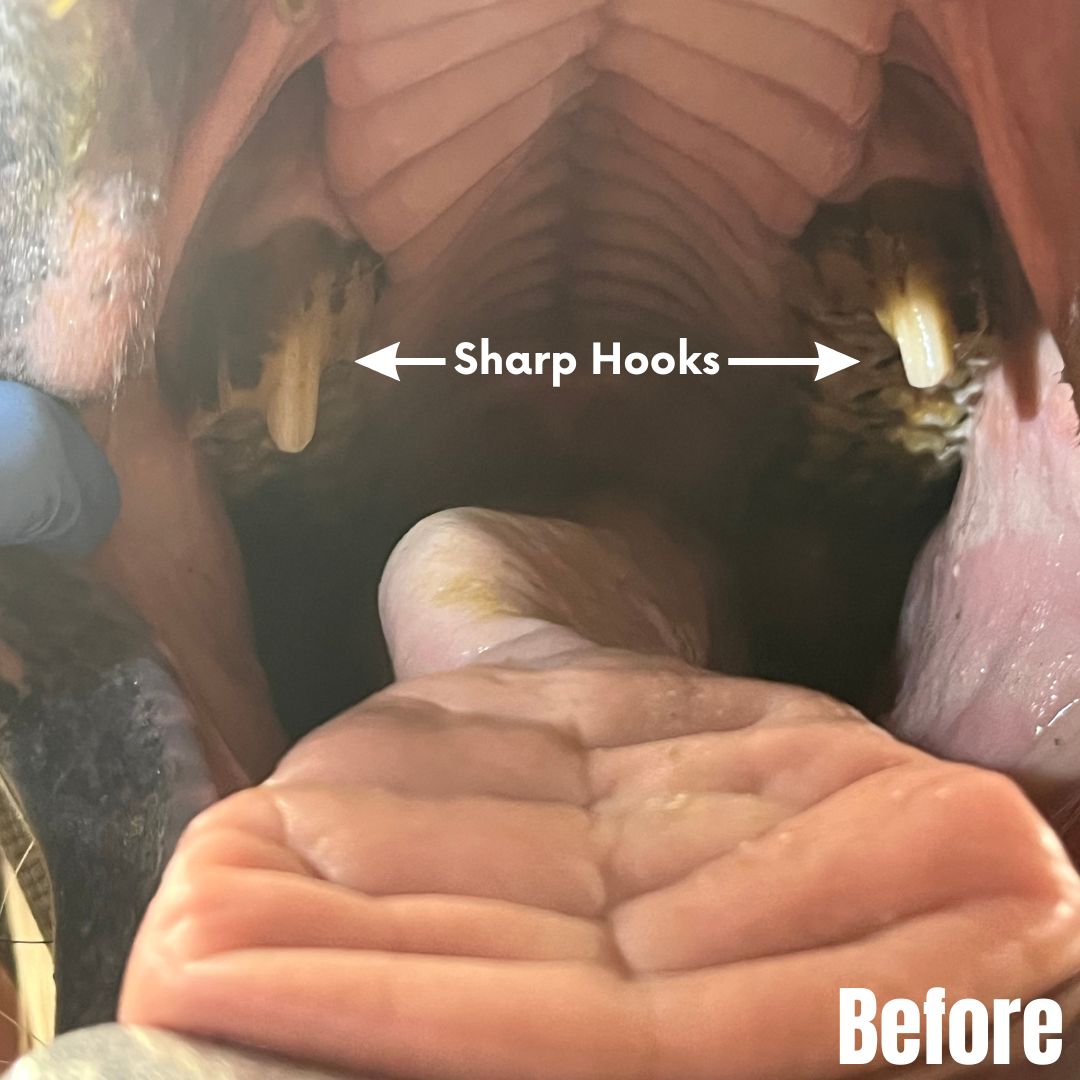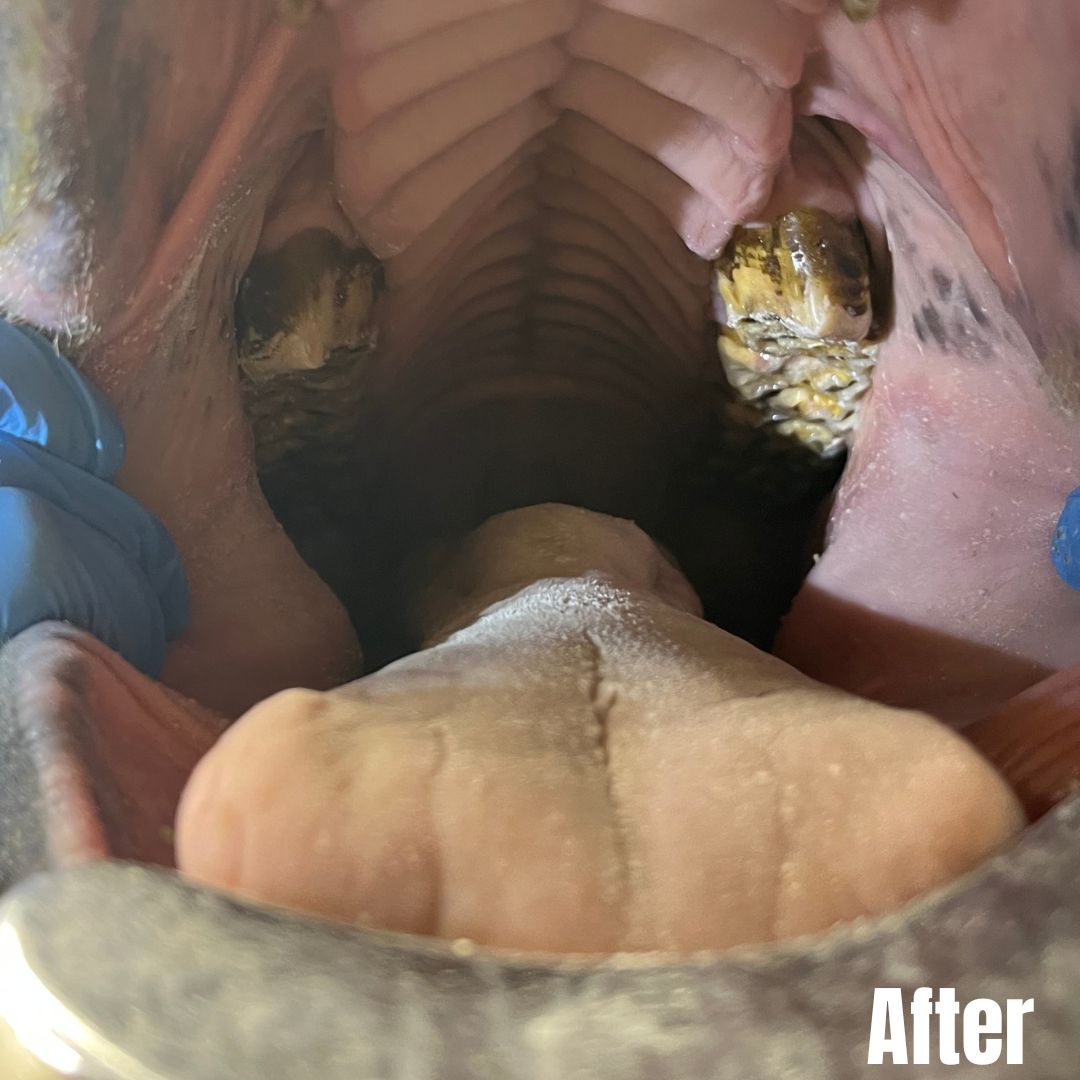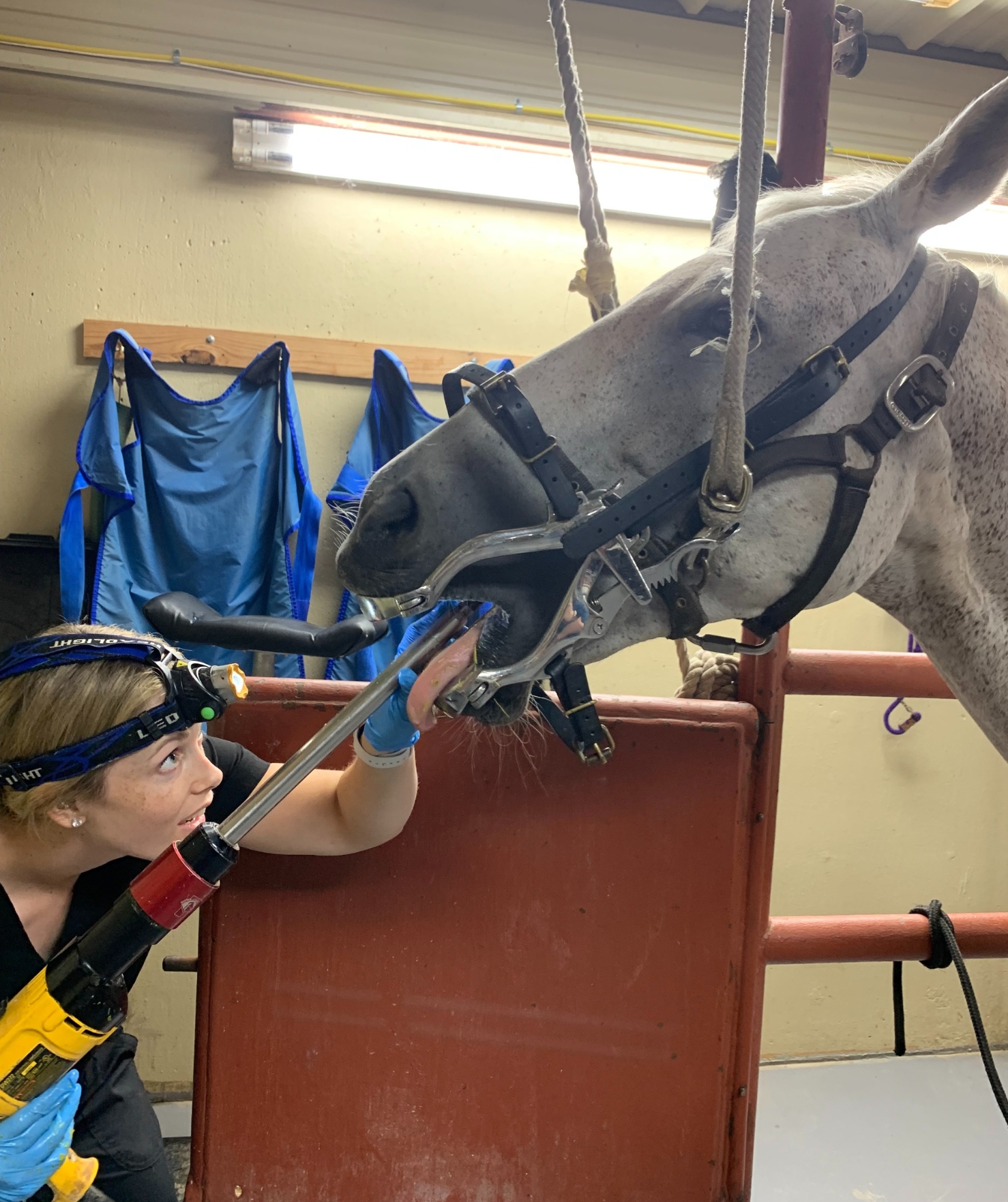At the time of an annual physical examination your veterinarian will likely take a quick look at your horse’s incisors (front teeth) and may use their finger to feel the first one or two pre- molars. If your horse is well behaved, your vet may even be able to grab their tongue and take a look into their mouth with a light. Sometimes sharp points are easily seen or felt but other abnormalities can be difficult to detect without the use of sedation and a dental speculum.

 Routine dental care is essential to your horse's health. Horses are hypsodont animals, meaning that their teeth continue to erupt throughout their lives and are worn away by grinding feed material. Uneven wear over time is common and can lead to a number of painful dental problems as well as affect your horse’s overall health.
Routine dental care is essential to your horse's health. Horses are hypsodont animals, meaning that their teeth continue to erupt throughout their lives and are worn away by grinding feed material. Uneven wear over time is common and can lead to a number of painful dental problems as well as affect your horse’s overall health.
Some signs of  dental disease include:
dental disease include:
- Halitosis (bad smelling breath)
- Excessive drooling
- Quidding (dropping partially chewed food)
- Reduced appetite/difficulty eating/slow eating
- Food packing within cheeks
- Poorly digested food in manure
- Weight loss
- Behavior issues while under saddle such as head tossing and difficulties steering
- Unilateral (one sided) nasal discharge
As a general recommendation, if it’s been over a year since your horse’s teeth have been floated they should probably be floated again. What if your horse is in good body condition and eating comfortably? Does it still need a dental? Most likely. Horses, like most animals, are amazing at hiding pain and discomfort from us. Even a fat horse could have a dental issue and even if their isn’t an “issue” per say, it doesn’t mean the horse won’t benefit from a routine float to reduce the sharp points in formation. The ultimate goal is to prevent an issue.